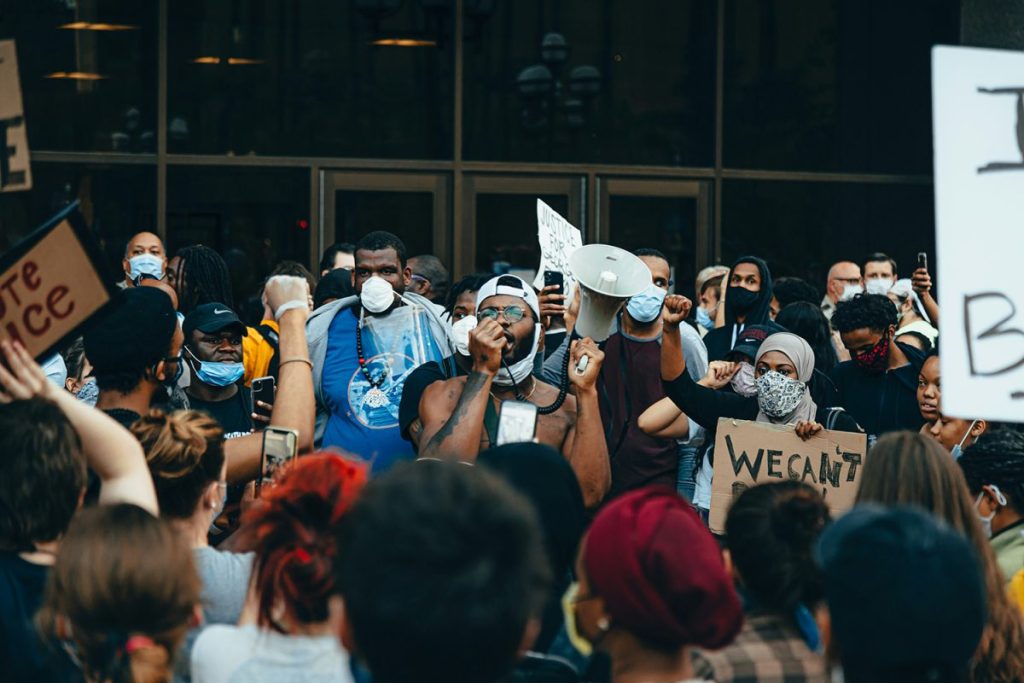(Newswise) — Three hundred Black and Hispanic teens in Chicago will be recruited to participate in the first clinical trial to measure the potential health benefits of youth-driven racial justice activism. The five-year study, funded by a $3.8 million grant from the National Institute on Minority Health and Health Disparities, will assess whether activism can lower depression symptoms in minoritized teens, as well as alter physiological factors known to be increased with exposure to racism, such as blood pressure and markers of stress and inflammation in the blood.
Led by Nia Heard-Garris, MD, MBA, MSc, from Ann & Robert H. Lurie Children’s Hospital of Chicago and Elan Hope, PhD, from Policy Research Associates, the study will randomly assign half of the participants to the intervention group and the other half to the control group. Teens in the intervention group will receive summer-long training on the skills needed to conduct impactful advocacy campaigns, while the control group will learn what Dr. Heard-Garris calls “adulting 101” or life skills ranging from typical adult tasks, like banking to succeeding in college. Data on psychological and physiological measures will be collected from both groups at baseline and then at six-month intervals for two years after the intervention.
“This clinical trial is innovative in that it addresses activism as health promotion,” said Dr. Heard-Garris, researcher and pediatrician at Lurie Children’s and Assistant Professor of Pediatrics at Northwestern University Feinberg School of Medicine. “It is well-documented that structural racism and discrimination lead to chronic stress and health deterioration, including metabolic syndrome, obesity and diabetes. Activism may be an untapped tool that could be utilized to improve the long-term wellbeing of Black and Hispanic youth.”
The current clinical trial builds on the promising outcomes from the pilot study conducted by Dr. Heard-Garris with funding from Stanley Manne Children’s Research Institute at Lurie Children’s. Dr. Heard-Garris leads the ARISE (Adversity, Racism, Inequities, Structures and Empowerment) Health Laboratory at Manne Research Institute.

“The activism intervention we piloted resulted in clinically meaningful reductions in depressive symptoms and we observed an upward trend in measures of resilience,” said Dr. Heard-Garris. “We learned that teens loved having a safe space and learning how to help their community. We also were excited to see that these teens continued to engage with advocacy long after the end of the pilot study.”
Another unique feature of the current study is the formation of the 10–12-member Youth Advisory Board that will guide the content creation for the intervention and control groups, help with participant recruitment and retention, as well as provide key insights into what is important to teens.
“The Youth Advisory Board will allow our research team to foster an invaluable partnership with teens,” said Dr. Heard-Garris. “Their lived experiences and perspectives are essential to the success of this project. We also plan to collaborate with community partners in our efforts to recruit study participants. We are very excited to launch this important study.”
Research at Ann & Robert H. Lurie Children’s Hospital of Chicago is conducted through Stanley Manne Children’s Research Institute, which is focused on improving child health, transforming pediatric medicine and ensuring healthier futures through the relentless pursuit of knowledge. Lurie Children’s is a nonprofit organization committed to providing access to exceptional care for every child. It is ranked as one of the nation’s top children’s hospitals by U.S. News & World Report. Lurie Children’s is the pediatric training ground for Northwestern University Feinberg School of Medicine.




